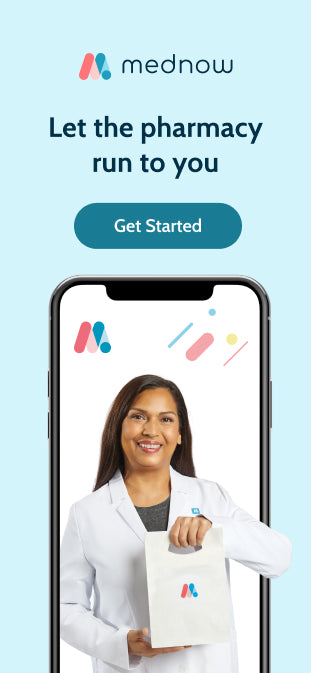The Canadian health care system is stretched to breaking.
Nearly 5 million Canadians don’t have access to a primary care physician. Meanwhile, Emergency room wait times are breaking records.
Without a regular primary care provider, Canadians turn to walk-in clinics and emergency rooms. This in turn can mean a condition must become acute before the patient seeks care. Moreover, by relying on walk-in clinics and emergency rooms, patients compromise on important follow-up care.
The end result can be a negative outcome, especially for those with a chronic health condition that requires constant monitoring, like diabetes.

To achieve better outcomes, people need frequent, dependable, and professional support. A comprehensive pharmacy benefits plan can fill this gap for individuals — particularly those living with chronic conditions — and ensure they get the ongoing support they require.
How comprehensive pharmacy benefits plan can help
People engage with pharmacists an average of 10 times more often than any other healthcare provider. Skilled pharmacists and well-run pharmacies offer much-needed access and advice for Canadians.

When employees have access to a comprehensive pharmacy benefit and patient-centred care, they enjoy more support and with support come better outcomes. Some reasons for this include:
Easier access
Generally speaking, pharmacists are more accessible than other healthcare professionals, including physicians. This is especially true when pharmacists are accessible online through virtual pharmacies and digital healthcare platforms.
Ease of access lowers the barrier to entry and make it more likely that people will seek out help and ask questions right away, rather than waiting until their health issues escalate.
Assessments
An article published by the Canadian Pharmacists Journal explains that pharmacists can assess patients and their current treatment protocol.
They can also determine the appropriateness, effectiveness, and safety of treatments and alternatives. This helps to prevent and resolve problems that may result from medication misuse and medication non-adherence.
Care plans
Pharmacists can also create personalized care plans for each patient — collaborating with other members of the healthcare team when needed.
These plans include more than just recommendations for when to take a particular medication and what the optimal dosage is. They also take into account other factors, like the patient’s medical history and adherence issues.
Compliance monitoring
Comprehensive care plans from pharmacists provide support systems that lead to better patient outcomes.
Their support includes compliance monitoring to ensure patients are taking their medications as directed. They should also offer medication reminders and assistance with plan adherence — such as daily pill packs for easy dispensing and automated reminders.

Lifestyle interventions
A robust pharmacy benefits plan offers other key resources. This includes wellness coaches, nutrition professionals, and mental health professionals.
When patients have access to these experts — in addition to a knowledgeable and friendly pharmacist — they can make long-lasting lifestyle changes and more meaningful improvements.
Regular follow-ups
The pharmacist plays an essential role in monitoring the patient’s condition and checking on their progress. After all, the average patient connects with their pharmacist more than any other member of their healthcare team.
Thanks to these regular follow-ups, a pharmacist can identify adverse effects and signs of drug misuse easier and sooner than other professionals. This helps the patient get help faster and avoid long-term negative effects.
Fewer adverse drug reactions
Drug-related events account for approximately 12 percent of emergency department visits. More than two-thirds — 68 percent — of these visits could have been prevented, too.
Patients are less likely to misuse or make mistakes when taking their medications when they can rely on regular refill delivery and smart adherence-driving packaging. The same applies when they can easily ask questions or address concerns with a pharmacist.
Not only does this decrease emergency room visits, but it also reduces the risk of negative side effects and sets patients up for better long-term health.
What to look for in a pharmacy benefits plan
The right pharmacy benefits plan offers many advantages to both employee and employer. To experience these advantages, though, employers need to choose the right plan.
When shopping for pharmacy benefits for their employees, employers should look for one that provides the following:
- Prescription drug coverage
- Vitamin and supplement coverage
- Fast and free delivery
- Access to virtual care and advice from pharmacists
- Wellness programs — such as nutrition advice, exercise recommendations, etc.
- Mental health screening and support
All these benefits (and cost savings to boot) are available to plan members when plan administrators choose Mednow as their preferred pharmacy.
A plan that checks all these boxes helps employees address their health from all angles. It provides easy access, comprehensive solutions, and ongoing support. All of these contribute to better long-term results.
Achieve better outcomes with patient-centered pharmacy care
One of the best ways to support your employees is by providing access to patient-centred pharmacy care.
This type of benefit gives employees coverage for prescription drugs, vitamins, and supplements. It also provides comprehensive, personalized care plans, improves medication management and adherence, all of which improve health outcomes.
If you’re looking for a plan that offers all this and more, try Mednow. Get in touch today to learn how you can improve your company’s pharmacy benefits plan, reduce drug costs, and improve patient outcomes.
Commencer
